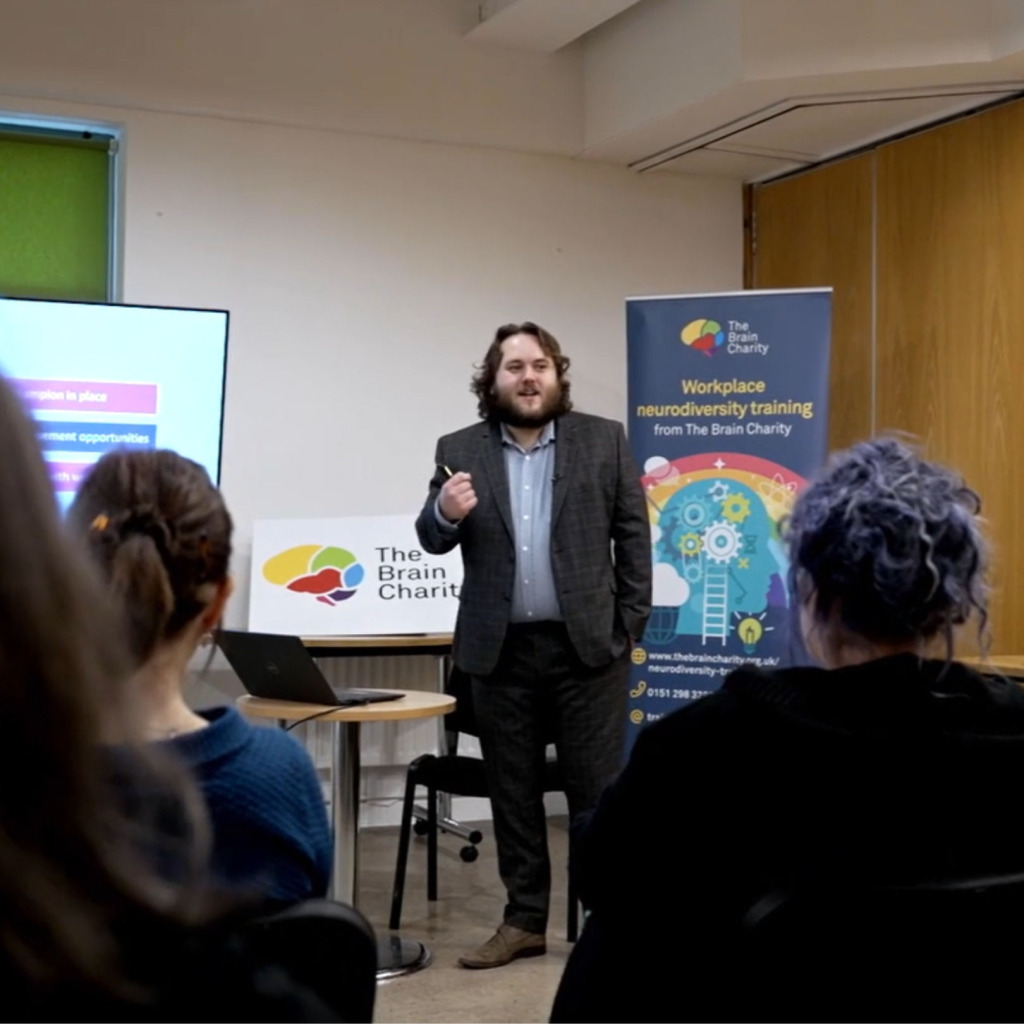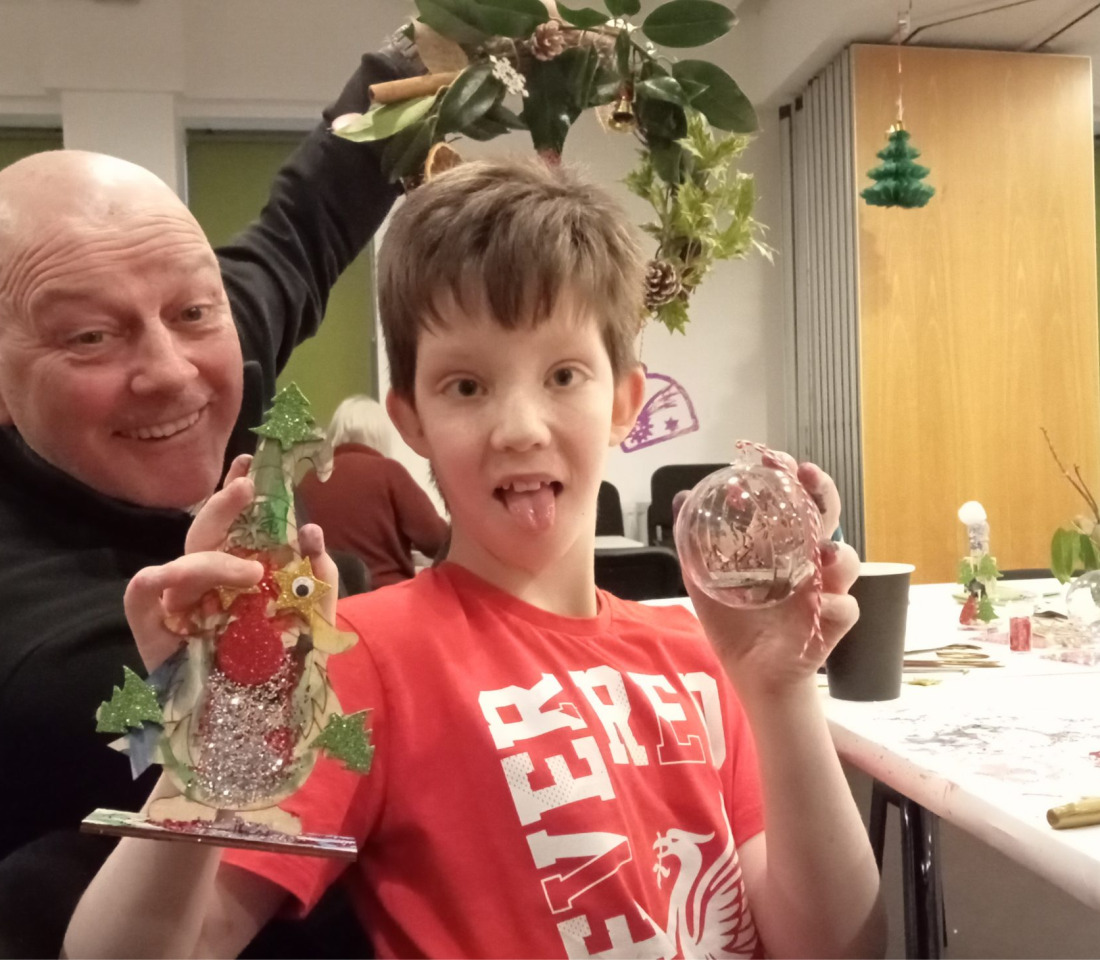Meet The Brain Charity’s neurodiversity trainers
The Brain Charity’s neurodiversity training sessions are delivered by people who are directly affected by neurodivergence. Each of our trainers is either neurodivergent themselves, or the parent or carer of someone who is neurodivergent.
Our trainers bring a wealth of experience, insight, and passion to their roles, empowering others to embrace neurodiversity and helping businesses to thrive.
Meet some of the trainers who deliver our sessions on on the importance of embracing neurodiversity within your organisation below.
Gregory
Gregory is an Associate Trainer for our workplace neurodiversity training.
We caught up with him during Neurodiversity Celebration Week to chat about why it’s important to celebrate brain differences.
He said: “I find it very rewarding how emotionally resonant people find our training and there are so many people affected who for the first time feel equipped to talk about a condition.
“What’s amazing about having a celebration week is we can recognise different perspectives. That’s part of what makes an amazing environment, to encourage people not to be the same.
“Why not be different alongside each other rather than different in competition?
“A rising tide lifts all ships. When we recognise in a workplace or school someone has a different life experience to ourselves – it can be difficult to navigate but with empathy we can experience the joy of seeing the world through someone else’s eyes. It deepens our own experience by letting other people in.”

“Gregory’s style was perfect for our company. We have had lots of positive feedback on the session and look forward to future sessions with the Brain Charity.”
– Principality Building Society
Christina

Christina has lived experience of autism as mother to an autistic child. As Children and Young Persons’ Project Coordinator for The Brain Charity, Christina manages the Brain Changer Arts Project, which provides sessions of ‘Physiotherapy through Art’ and ‘Occupational Therapy through Dance’ to children and young people with neurological conditions.
She is currently undertaking a professional doctorate in Education (EdD), where she will utilize participatory action research to co-create positive learning environments for neurodivergent young people with a focus on personal and social development, and well-being.
She is also working at the Alder Centre for Education (ACE) providing enrichment sessions to gain greater insight into the application of alternative and creative teaching methods with neurodivergent teens.
Christina delivers bespoke training sessions to companies and organisations focusing on issues surrounding neurodiversity in the workplace and helping employers to implement positive strategies.
She also provides specialised neurodiversity training for schools, offering tailored sessions in educational settings for teachers and learning support assistants.
“Excellent communication pre and post training. Chris, our trainer was thorough and brought real life examples to her session which was really helpful”
– The Reader charity
Jack
Jack, 22, is another of our Associate Trainers.
He has a diagnosis of autism and dyspraxia and delivers training on how workplaces can support neurodivergent employees and help create a culture of inclusion. This is not only important for employers, but helps businesses thrive too.
Jack is currently studying a PhD in cultural change, neurodiversity and the criminal justice system. He has worked with the FBI, Metropolitan Police, the Foreign and Commonwealth Development Office, ADHD Foundation, Counter Terrorism Policing and The Jockey Club, advising on neurodiversity.
He offers the following advice for employers who want to support neurodivergent employees.

“The most important thing is to actually listen to an individual. But remember, once you’ve met one neurodivergent person, you’ve met one neurodivergent person. Every single person’s needs are very different.
“It’s important to build a culture of trust as it’s getting people to be confident in disclosing and seeking support. Small changes like following up a verbal request with an email can really help, as well as providing lists of tasks in priority order.
“There have been brilliant studies done where neurodivergent employees are given tasks from across organisations to help problem solve and find solutions that might have been missed. There are real benefits to embracing and supporting neurodivergent employees.”
Snoof
Snoof is a multiply disabled artist, maker and educator with a passion for disability acceptance and inclusion.
They are part of a small community makerspace – DoES Liverpool, and a founder of STEAM ENGINEERS, where they have years of experience delivering community workshops for children and adults alike.
“Without a diagnosis I would probably be full of self-recrimination about my struggles, and I would tend to look negatively on any traits considered undesirable by wider society,” says Snoof, a wheelchair user who has been diagnosed with autism, dyscalculia, and ADHD.
“Really, for me personally, being diagnosed allowed me to see myself the way I see other neurodivergent people – as an individual with strengths and challenges, just like neurotypical people.”

“The speakers explained very complicated concepts in a way that was appropriate for the audience. Everyone was enthralled.” – Practice Plus Group
Hannah

As a dedicated neurodiversity trainer for The Brain Charity, Hannah brings five years of invaluable teaching experience coupled with a passion for fostering inclusivity and understanding in the neurodiverse community.
As someone who is neurodivergent herself, she wholeheartedly embraces her unique perspective, using it as a foundation for advocacy in the field of disability rights.
With a deep commitment to dispelling misconceptions and championing acceptance, Hannah’s goal is to empower individuals and organizations to create environments that celebrate neurodiversity, fostering a world where differences are not just accepted, but celebrated.
To learn more about our neurodiversity training, please click here.











